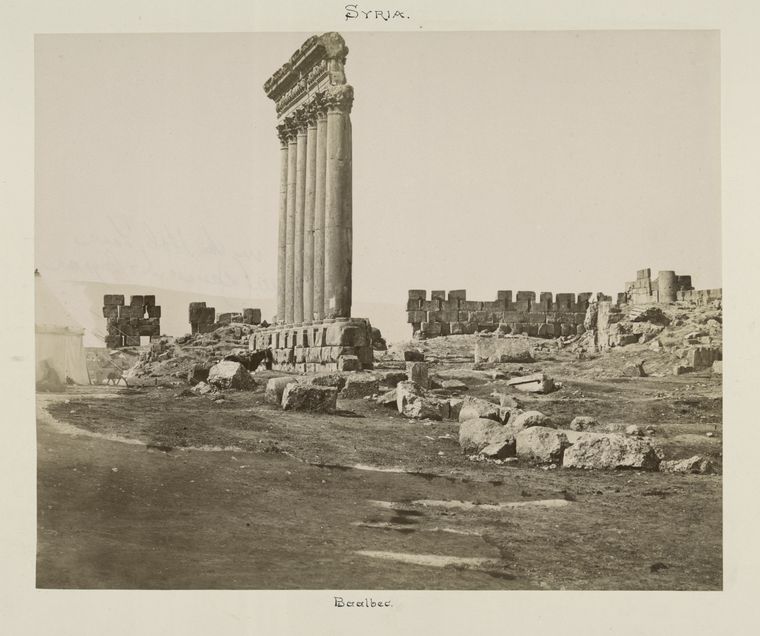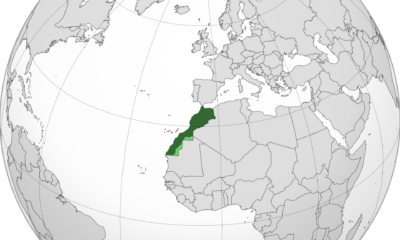Executive
Perspective on Syria: The War, the Weapons, the Players, the Principles, the Christian Response

The bombs have already fallen. The U.S. response to the April 7 alleged1 use of chemical weapons by the government of Syria seems to be behind us. But the Syrian civil war is far from over. So also is America’s involvement in that far away and little-understood corner of the world.
A review of all the facts about Syria
Unfortunately, most Americans know very little about the real nature of the Syrian civil war, its history, its scope, or the players involved. Worse yet, almost no one is discussing the proper application of the rule of law or the moral principles that should be considered before interjecting ourselves into another country’s internal affairs. Most of us only know what can be learned from the sound bites served up by the six o’clock news or the party line being proffered by our favorite pundits.
Given that the Syrian civil war is ongoing, that the U.S. has troops on the ground, and the deep state political establishment seems to have long-term plans for that country and region, we would do well to get ourselves apprised of the facts, the history, and the players involved, then consider the sound principles that can guide us to a wise, lawful, and moral course of action.
A Brief History
Syria has been around since Old Testament times with its capital, Damascus, being one of the world’s oldest continuously inhabited cities. Syria spent 400 years under Ottoman rule, which ended with World War I, after which it became a French mandate under the League of Nations. Syria became an independent country in 1946 but suffered numerous coups until Hafez al-Assad came to power in 1970. Assad remained president until his death in 2000, since which time his son, Bashar al-Assad, has been president.
Syria has an elected legislature, and since the implementation of the country’s 2012 constitution, the office of President has also become subject to direct election.
Though Islam is the dominant religion in Syria, the country’s constitution contains a religious freedom clause protecting the right to practice other beliefs. As of 2017, ten percent of Syria’s population was Christian.
2011: civil war begins
In early 2011, demonstrations broke out in Syria encouraged by the Arab Spring upheavals that were going on across the Arab world. By spring of that year, the Syrian Army was deployed to quell the unrest. In July, some of the anti-government groups met in Istanbul to bring together various internal and external opposition groups. By 2012, Syria was engulfed in full-blown civil war.
The conflict has now grown to include literally hundreds of groups, militias, or terrorist organizations that are generally arranged into five different coalitions, each occupying different parts of the country, with some holding multiple positions within the country, and some occupying pockets within territory held by another coalition. But wait, it gets more complicated.
Some coalitions are pro-government, some anti-government, some just want to be left alone, and some want to rule the world (Islamic Jihad). Some of the anti-government coalitions are enemies of each other and some of the groups within coalitions are friends, or enemies, of each other, or of groups within the other coalitions. Some of the coalitions are terrorists by nature while others, including the coalition backed by the U.S., have some groups within the coalition that are considered terrorist organizations.
USA Today produced this two-minute video that gives a good overview of the various forces, factions, and coalitions fighting in Syria.
Sectarian conflict
While we hear about the war as having sprung from “pro-reform protests” and demands for “political freedom,” it needs to be understood that the Syrian civil war is, in great part, an Islamic sectarian conflict. The government is primarily controlled by Alawite Muslims, a branch of Shi’a and a minority in the country, while the opposition groups are predominately Sunni Muslims.
This sectarian conflict is nothing new. From 1976 to 1982, the Sunni Muslim Brotherhood led an armed insurgency against the Alawite government of Hafez al-Assad, viewing it as being too secular. For various reasons, including the fact that Alawites do not adhere to Sharia law, many Sunnis have long held that Alawites are not true Muslims. Sunnis have particularly resented having Syria ruled by this more moderate minority that has prevented true Islamic rule under Sharia law.
Death Toll and Chemical Weapons
I realize that the accusations of chemical weapons use by the Syrian government are disputed by many, both in regard to the recent incident2 and previous ones. And yes, it does seem odd that someone sitting on a stockpile of such weapons would use them so sparingly, so ineffectively, and at such inopportune times.
However, the purpose of this article is to put the overall Syrian civil war into perspective and to consider the principles that should guide American policy toward that war-torn country. Therefore, I will leave the debate about whether chemical weapons really were used to others and will proceed on the basis of “if the ‘official’ story presented by the dominant media and American politicians is true (I know, that’s a stretch), then what should our response be to the recent chemical weapons attack and future events in Syria?”
Alleged chemical deaths a tiny fraction of total deaths
While we are expected to be horrified and enraged by the recent killing of 43 people by means of a chemical weapon, at least 353,935 people have been killed in the Syrian civil war since 2011, with some estimates going as high as 470,000. That’s a minimum of 136 people being killed every day, day after day, week after week, year after year for seven years. The April 7 chemical weapon attack in Douma only accounted for a third of an average day’s killing.
Death tolls in Syria are quite evenly divided between the pro-government forces (121,950), anti-government forces (125,399), and civilians caught in the crossfire (106,390). The fact that pro and anti-government forces are killing an equal number of each other makes it reasonable to assume that they also account for an equal portion of the civilian deaths.
As for the shocking deaths of 20 children killed in the recent alleged chemical attack, estimates are that as many as 19,000 children have been killed during the seven-year reign of death and destruction in Syria.
There have been 19 reported uses of chemical weapons in the Syrian civil war that have resulted in deaths for a total body count of 1,039, or, 0.3% of total war-related deaths. By far the greatest number of deaths came in 2013 with 861 killed that year. Oddly, nearly all of the reported chemical weapons deaths have been civilians, with only four combatants being killed by chemicals. If someone is trying to use chemical weapons as part of a military strategy, they’re really bad at it and keep hitting all the wrong targets, but that’s another story.
An overreaction
Though every life matters, the idea that we would go halfway around the world to attack a sovereign nation for using the wrong kind of weapon to kill 43 of the nearly half million people who have been butchered in that bloody civil war is ludicrous. I don’t know the real reason why the neocon, globalist, war hawk, CFR, establishment types at the head of both parties are so determined to enmesh the United States in the sordid affairs of Syria and the various warring factions of the Middle East, but it seems they could come up with something more plausible than chemical weapons. It’s like “oh, we don’t care that Arabs kill each other by the hundreds of thousands, but when 43 of them get killed the wrong way, well, now we’re morally outraged.” How absurd!
Death, Destruction, and Outside Influences
The chief executive of the Red Cross stated “I’ve never seen anything like it . . . It’s on World War Two scale.” He went on to state that, “Even if peace arrived tomorrow it would take decades to rebuild because so much has been destroyed” (watch this haunting video to see the level of devastation experienced in just one of Syria’s war-torn cities).
According to World Population Review, Syria had a pre-war population of over 22 million, nearly a half million of which have been killed, with 9 million having fled as refugees and 6.5 million of those remaining in the country having been displaced. Approximately 5,000 people continue to flee the country every day.
So how can one tiny spec on the world map inflict so much damage on itself? The answer is that Syria isn’t doing this on its own.
One list shows at least 15 countries, including the United States, Russia, Iran, Saudi Arabia, and many more, all pouring money, munitions, or manpower into the various factions that are fighting in Syria, making the country a proxy killing field. We’re witnessing the combine destructive forces of several governments all unleashed in one small place, on one poor pathetic population. Without the outside influences, it’s improbable the fighting could go on this long, or the destruction reach this level, as the resources of one small country would eventually exhaust themselves and the stronger faction would prevail.
Moral Authority
Now that we’ve put the circumstances of the Syrian civil war into perspective, we can turn our attention to the applicable principles for determining whether it is wise, lawful, or morally just for the United States to interject itself into Syria’s affairs.
The first principle to consider is that of moral authority, which is to ask, “from what immutable truths does the United States derive authority to interject itself into the Syrian civil war?”
The fundamental idea of just war theory is that a just war is a defensive war. But, Syria has not attacked America. Neither our lives, our liberty, nor our property are in imminent peril.
A moral case might be made for coming to the aid of a truly innocent nation, or people, who have suffered unprovoked attack by an aggressor. However, in Syria, the only potential innocents are the civilians that are being killed in the crossfire, and, as we established earlier, there seems to be about as much crossfire coming from both the pro and anti-government coalitions. We could just pick a side and kill everyone on the other side and thereby end the fighting, but that would mean even more killing. And, there is a strong possibility that whoever prevails will use their power to exact revenge on the opposition, and if some of the more radical Sunni factions prevail, there is fear they may try to purge the country of the Alawites and Christians.
Mind your own business!
For one country to interject itself into another country’s civil war is the same as you or I interjecting ourselves into a neighbor’s domestic dispute. If your neighbor, his wife, two teenage kids and the uncle that lives with them are all yelling, screaming, hitting each other, and throwing things, do you have the moral authority to go over there, kick down the door, insert yourself into their family feud, then, side with one of the kids who wants you to shoot his dad in the head while the wife is screaming at you not to do it? If we as individuals do not have the moral authority to interject ourselves into a neighbor’s domestic dispute, then we as a nation of individuals do not have the moral authority to interject ourselves into the internal conflict of a neighbor in the community of nations.
“Interfering in someone else’s argument is as foolish as yanking a dog’s ears.” (Proverbs 26:17)
Constitutional Authority and the Rule of Law
If we were to obey the rule of law under the United States Constitution, no military action could be taken in Syria without a Congressional declaration of war as specified in Article I, Section 8 of the Constitution. Under the War Powers Resolution, the President can engage in defensive military action for up to 60 days without a declaration of war, but as we’ve already established, Syria has not attacked the United States, so that doesn’t apply (for more on the War Powers Resolution, see my article on Syria, the U. S. Constitution, and the War Powers Resolution).
Nevertheless, we already have 2,000 troops in Syria assisting some of the anti-government groups in fighting ISIS and trying to keep the peace on the Turkish/Kurdish/Syrian border.
The plot thickens
A few months ago, then Secretary of State, Rex Tillerson, indicated that the U.S. will be in Syria indefinitely to vanquish al-Qaeda, oust Iran, and secure a peace settlement that excludes Assad. As recently as April 15, U.S. Ambassador to the United Nations, Nikki Haley, made similar statements including naming the Iranian presence in Syria as a, “national threat to American interests.” Now, we know that Iran is not capable of attacking America, but Israel and Iran view each other as enemies and Iran has built some bases in Syria (with permission of the Syrian government), one of which Israel bombed last year.
Apparently, what both Tillerson and Haley are saying, is that the deep state has already decided that Israel is a U.S. national interest, so, we’re going to stay in Syria indefinitely in order to entangle ourselves in yet another Middle East running feud. So, as they say, the plot thickens and U.S. involvement deepens.
Yet with troops on the ground, bombs falling, and stated objectives that could keep us in Syria for decades to come, there’s no Congressional declaration of war anywhere in sight, so, it appears we’re already too late for the whole Constitutional rule of law thing.
Chemical Weapons Convention
Some might point out that if Syria possesses, and has used chemical weapons, then the Chemical Weapons Convention has been violated and needs to be enforced. While that might be a valid point, under the terms of the convention, it is the Organization for the Prohibition of Chemical Weapons (OPCW) that is tasked with performing both inspections to ensure compliance and investigations of alleged uses of chemical weapons. The United States has not been authorized to perform such duties. Therefore, any attempt on our part to enforce the Chemical Weapons Convention would be a usurpation of authority that does not belong to us.
The OPCW has dispatched inspectors to the site of the April 7 alleged attack. Inspectors arrived the same day as the U.S. led strike on suspected chemical weapons facilities and were set to begin their investigation the following day.
A Christian Response
Government and its ability to wage war has its place and that place is in protecting the lives, liberty, and property of its citizens. But, as we’ve established, no one in Syria has attacked or is poised to attack the U.S. We have looked at every conceivable justification for U.S. intervention in Syria – moral authority, just war theory, Constitutional authority, Chemical Weapons Convention – and there’s just no proper basis for U.S. government involvement.
However, there is a basis for U.S. citizen involvement – for Christian involvement.
The Christian is called to compassion, to charity, to loving our neighbor as our self, to feeding the hungry and clothing the naked. There is a huge opportunity for Christian charity work in Syria and the refugee camps of the surrounding region. This is an opportunity to show the love of God – something that Islam knows nothing of.
Evangelism
There is also a tremendous opportunity to fulfill the Great Commission of preaching the gospel to every creature and making disciples of all the nations. Many Syrian refugees have become disillusioned with the religion of war that has destroyed their homes, their cities, and their country. Many Muslims are now ready to hear about Jesus.
A report from one of the Christian organizations ministering to refugees states that, “When passing out the aid, volunteers offer refugees the option of a ‘JESUS’ film DVD and New Testament as a gift. So far, everyone has taken the DVD with the aid, and some even take it before they take the food packet. Volunteers also ask if they can pray with the person in the name of Jesus. Everyone has said yes.”
There are many such stories coming out of that part of the world from various Christian ministries. I perceive that as the Apostle Paul said of Ephesus, “There is a wide-open door for a great work here.”
This is an opportunity for the church to be that shining city on a hill that shows a dark, war-torn land, the glory of the goodness of a God who loves them.
Limits of military intervention
We have reached the limit of what can be accomplished through military might in the Middle East. We have been dropping bombs on that part of the world (Afghanistan, Iraq, Libya, and Syria to name a few) since 2001 and have not managed to bring peace and stability yet.
What’s needed in Syria is not a job for the government, it’s a job for the church.
I wonder what might happen if we, as Christians, and Americans, started investing as much in missions as we’ve been spending on munitions?
If it is possible, as much as depends on you, live peaceably with all men. (Romans 12:18)
Endnotes
1Editor’s Note: “Alleged” is the key word. One America News Network sent a journalist into Syria. He investigated directly and found no evidence of any gas attack of any kind. Someone is therefore flying a false flag. However, CNAV respects the author’s wish to answer the question, “if true, then what?” Which see below.
2See “False Flag Alert” and “Russian Roulette” on this site.
Bob Peck is a Christian, Constitutionist and political activist who serves as the chairman of the Constitution Party of Washington and is a member of the Constitution Party National Committee. Bob lives in Spokane Valley, Washington where he is a landlord-handyman. If, like Bob, you find yourself feeling betrayed by a two party duopoly that no longer represents your values, then check out the Constitution Party at www.constitutionparty.com or call 1-800-2VETOIRS and ask for a free information packet.
-

 Guest Columns5 days ago
Guest Columns5 days agoData Centers Are a Repeat of History in PA’s Coal Region
-

 Executive4 days ago
Executive4 days agoWaste of the Day: Secret Settlements get Taxpayer Money
-

 Executive5 days ago
Executive5 days agoWaste of the Day: Throwback Thursday – Americans Lead Moroccan Pottery Classes
-

 Civilization5 days ago
Civilization5 days agoThe Northwest Passage Will Be Decided by Capability, Not Law
-

 Accountability24 hours ago
Accountability24 hours agoWaste of the Day: Principal Bought Lobster with School Funds
-

 Constitution14 hours ago
Constitution14 hours agoTrump, Canada, and the Constitutional Problem Beneath the Bridge
-

 Civilization3 days ago
Civilization3 days agoThe devil is in the details
-

 Executive3 days ago
Executive3 days agoTwo New Books Bash Covid Failures











